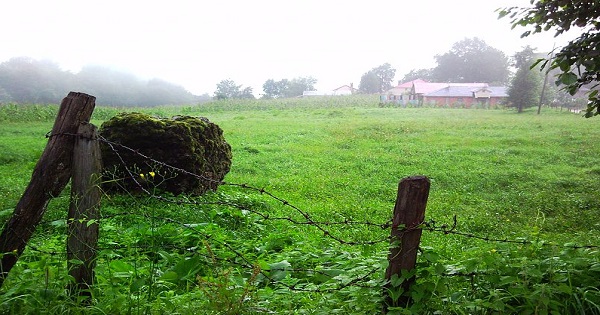
Karşular mahallesi,Tonya. Photo: Zekeriya Karkaç
Tonya (Gr: Τόνγια), known during Byzantine times as Thoania (Gr: Θοανία) is located 40km south-west of Trabzon. It is south of Akçaabat (Gr: Platana) and over the river Kalanema (Gr). Prior to the exchange of populations (1923) it comprised 2,000 Greek-speaking Islamized families. Another 1,000 families who originated from Tonya were spread out over the neighboring regions of Trabzon and Argyroupoli (Tr: Gumushane). According to Greek mythology, Tonya's Greek name Thoania was derived from King Thoantas who escaped from the land of the Taurus (bulls) and fled to Tonya in Pontus.
This Islamized population is the remnant of the 8,000 Christian families who during the mass exodus and Islamization of the 17th century left Trabzon and Akçaabat. The same Islamization process applied to the region of Ofis (or Ophis). As with Ofis, Tonya kept many of its Christian Greek village names like Mesohori, Mesoplayi, Katohori, Saint Thomas, Saint Stefanos, and Mesopedin. Even peoples' names like Ioannis, Themistocles, Alexandros and other names remained. The Tonyalis also have Turkish names, like Ali, Mustafa, Ahmet, but they only use them when they're far away from their hometown villages.
The only difference between the Tonya people (Tonyalis) and the people of Ofi (Oflus) is that the latter were more conservative and theological. The Tonyalis were stricter and renowned for being able-bodied thieves. Many were also police and rural law enforcers. Greek-speaking Tonyalis still exist in the villages: Kesli, Toumasli, Pachartikli, Mpeskeli, Mamali, Tsuluk, Melikse, Antzirkioy.
The history of Tonya is like that of Ofis, one of the puzzles of the Pontus. There is no direct classical or medieval reference to it. A few striking features of the Tonyalis is that they are Greek-speaking, Muslim and ferocious. The region is wild and isolated and traditional blood feuds were a common occurrence. The Tonyalis also have a reputation for vendettas and assassinations. Despite these traits, the Tonyali are a close-knit, highly distinctive and isolated community. The language is slowly dying, but Greek-speakers are still present today in Kesli, Tumasli, Pahartirli, Beskeli, Mamali, Tsuluk, Melikse, and Agirkoy. The question often arises as to whether these Greek-speakers are Turks who adopted the Greek language (as sometimes seems to have happened), or whether they are Pontic Greek speakers who apostatised. The latter is more probable since there is a church nearby at Fol Maden, and since some Tonya villages reveal Greek names. Melikse, Anabedama, Aspuryanlik, Mesakurfa, Lefkiye and Mankanabo are all villages close to or part of Tonya and all appear to have names with a Greek influence or origin.
Greek historians maintain that like Ofis and the Greek-speaking Muslim Oflus, the Greeks of Tonya apostatised in the late 17th century. In the case of Tonya there is no clear explanation as to why this happened. The notion however is plausible enough, for the late 17th century was the lowest point of Greek fortunes in Pontus, and Christians experienced considerable pressure on their faith during that period. As opposed to Ofis, the process of Islamization began very early in Tonya. Secondly, in Tonya it was complete. By the early 20th century there were still 8 Orthodox parishes in Ofis, whereas in Tonya there were none, nor apparently a Christian soul. The Tonyalis however did not figure in Ottoman defter figures therefore a complete study into their history has not been completed.
Sources:
The Encyclopedia of Pontian Hellenism
The Byzantine Monuments and Topgraphy of the Pontos, Dumbarton Oaks, p155-6 Anthony Bryer, David Winfield
Further Reading:
The Crypto-Christians of Trabzon